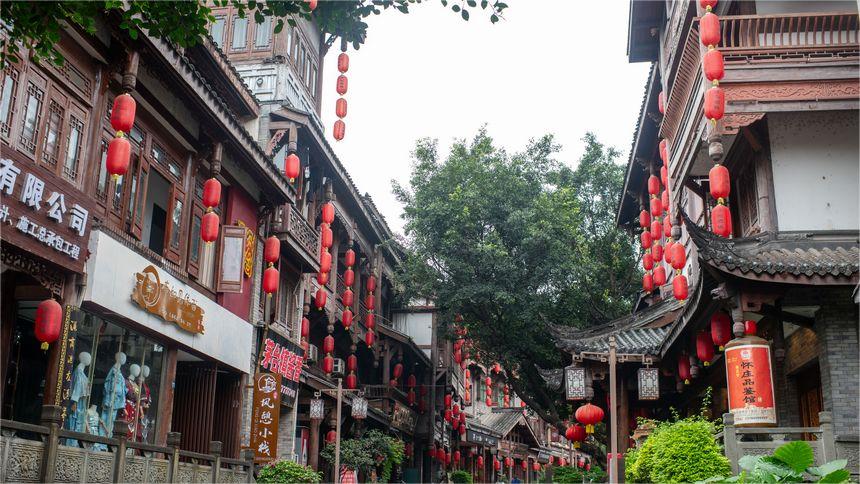SCO demonstration area emerges as logistics hub for international trade
QINGDAO, July 6 (Xinhua) -- Nearly six years since it began operations, the China-SCO Local Economic and Trade Cooperation Demonstration Area (SCODA) in China's eastern coastal city of Qingdao has evolved into a critical hub for international trade, seamlessly integrating sea, road, air and rail transport.
Earlier this week, 100 standard containers loaded with cars and auto parts were transported by ship from Incheon in the Republic of Korea (ROK) and reloaded onto a China-Europe freight train at the demonstration area. The train will travel past Alashankou Port in northwest China's Xinjiang Uygur Autonomous Region before arriving at its final destination of Boralday, Kazakhstan.
The 14-day express transport service from the ROK to Kazakhstan is an example of how the demonstration area facilitates multilateral trade cooperation.
"We are striving to build the area into a gateway to the Asia Pacific for Shanghai Cooperation Organization (SCO) countries," said Zang Yuanqi, an official of SCODA's management committee.
Leveraging its transport advantages, the demonstration area has gradually become an international logistics corridor connecting the Asia-Pacific region to its east, Central Asia and Europe to its west, South Asia and Southeast Asia to its south, and Mongolia and Russia to its north, according to Zang.
SCODA now operates 32 international train routes, reaching 54 cities in 23 countries, including the SCO countries and Belt and Road partner countries. Several train routes for goods like cold-chain products and fresh vegetables have also been launched.
To date, the area has managed over 3,200 China-Europe freight train trips, with an increasing variety of goods transported through its routes.
In addition to traditional exports such as tires and building materials, high-value-added industrial products like photovoltaic equipment, home appliances and automobiles have seen a significant rise in exports. In 2023 alone, over 12,000 vehicles were shipped to SCO countries from the area.
SCODA has also launched 42 maritime routes to SCO countries. Three new international air cargo routes have been opened since 2023, optimizing air connectivity with SCO countries and Belt and Road partner countries.
As a critical complement to its sea, rail and air capabilities, SCODA has also developed an advanced international road transport network. Last September, a road transportation route operating under the TIR system was launched between the demonstration area and Russia.
TIR, which stands for Transports Internationaux Routiers, or International Road Transport, was created to save time and money for transport operators and customs authorities as goods are shipped across borders.
Under the system, it takes roughly eight days to cover the 9,800-kilometer distance between Qingdao and Moscow, facilitating the timely delivery of Chinese goods, including fresh fruit, to Russia.
As SCODA continues to grow, 10 ports, stations, enterprises and other organizations on the trans-Caspian route have proposed a cooperation initiative. Increased cooperation on infrastructure development and transportation efficiency is expected to enhance connectivity to a greater extent.
Photos
Related Stories
- China endeavors to foster more united, prosperous SCO community
- Xi hails solid foundation of SCO, warns of real threat, risks
- Leaders speak highly of SCO's positive contributions to security, development, stability
- Belarus joins SCO as 10th member, highlighting bloc's growing appeal
- Belarus supports 3 key China-proposed initiatives, consensus on political settlement of Ukraine crisis
Copyright © 2024 People's Daily Online. All Rights Reserved.









